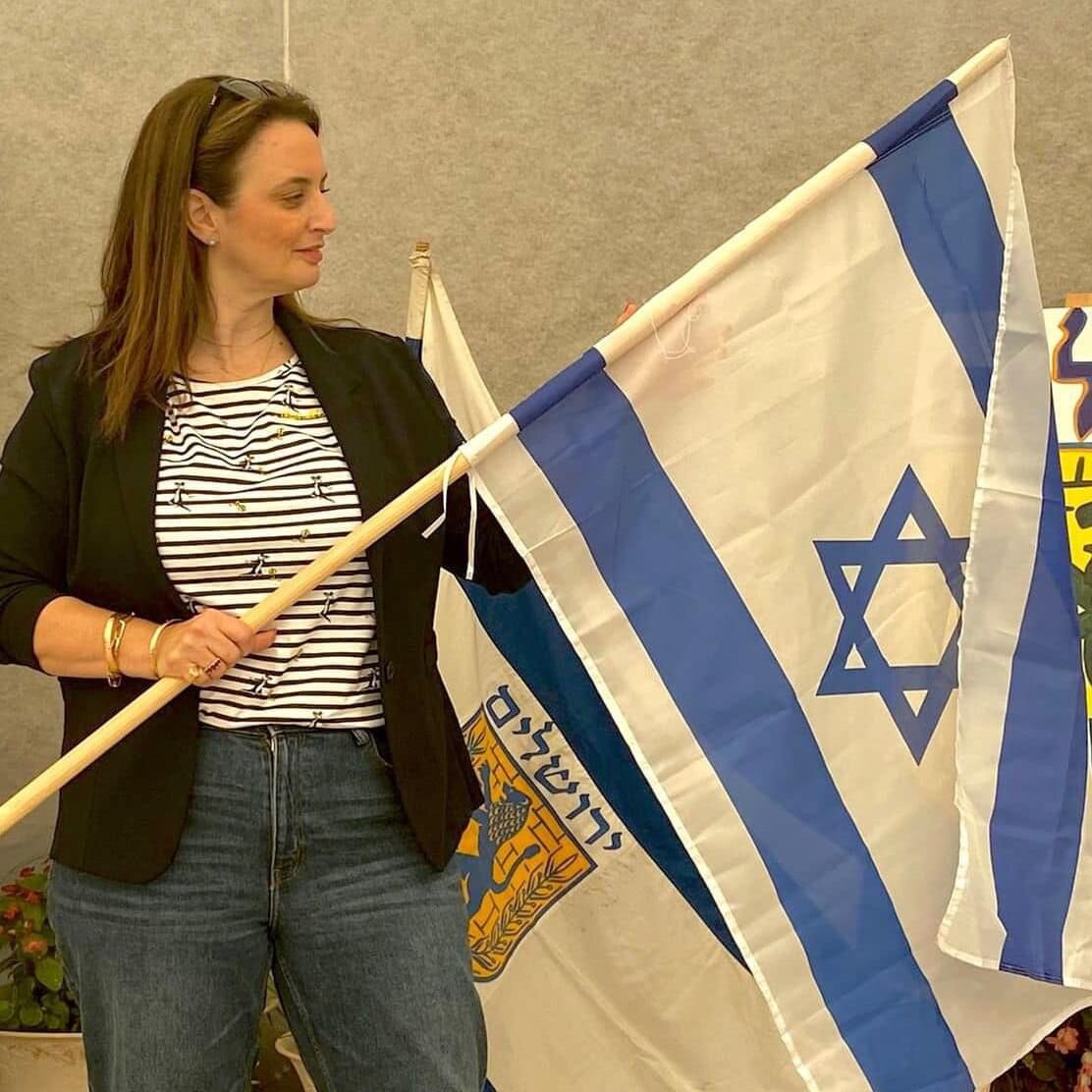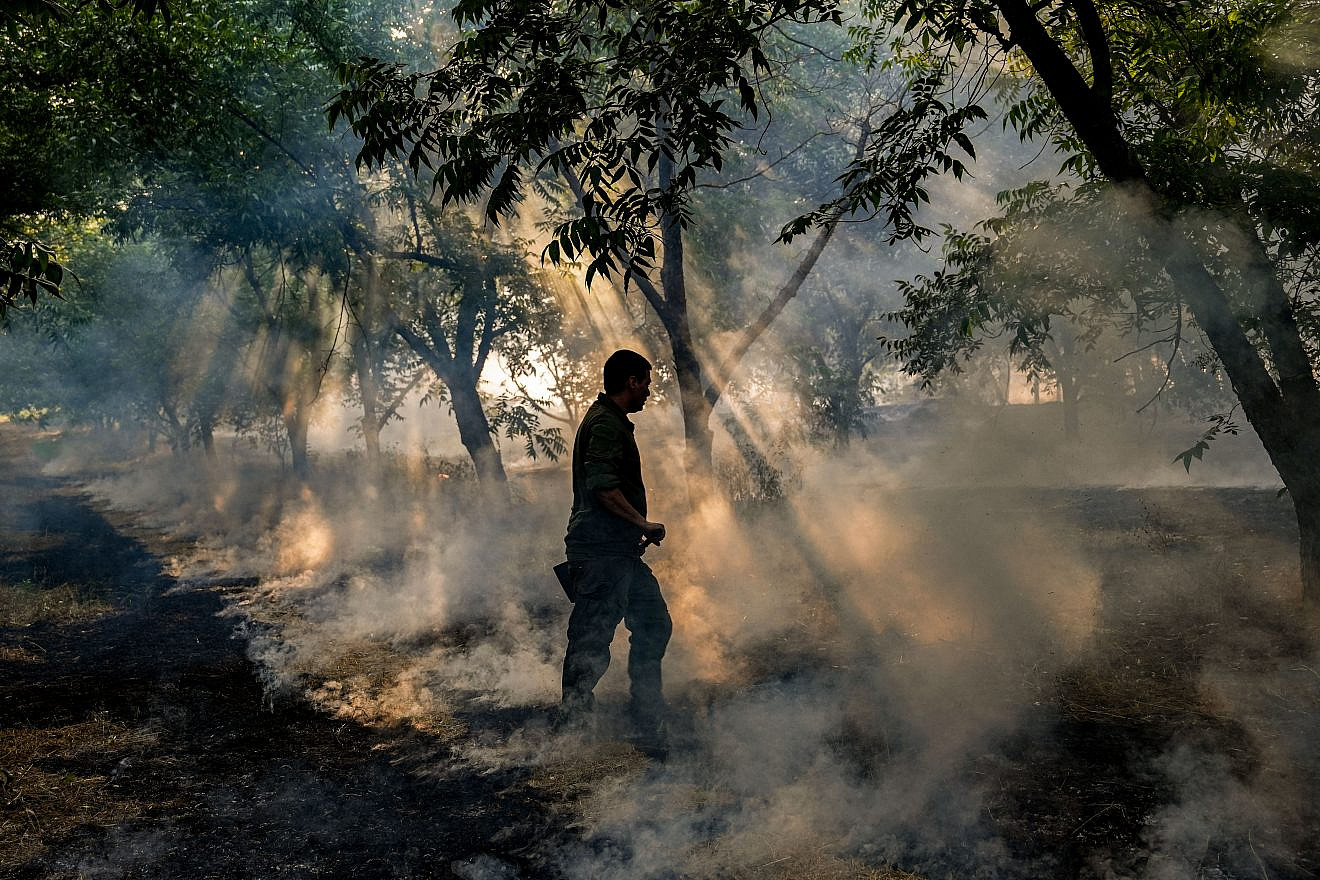The Israel’s northern front remains a volatile warzone, largely overlooked by international media. In the past week alone, Hezbollah has fired more than 300 rockets into Israeli territory, resulting in five civilian deaths and dozens of injuries.
The number of displaced Israelis from the north has now surpassed 70,000, with no clear timeline for their return. Despite diplomatic efforts, tensions continue to escalate, with the IDF reporting many thwarted infiltration attempts along the Lebanon border.
This latest escalation follows devastating wars between Israel and Hamas, with Hezbollah, backed by Iran, growing increasingly powerful.
The United Nations Interim Force in Lebanon (UNIFIL) has failed to prevent Hezbollah’s entrenchment along the border, while the Israeli government’s efforts to protect northern citizens after the Oct. 7 Hamas onslaught on southern Israel have fallen short.
Kiryat Shmona, a city nestled in the awe-inspiring mountainous region of the western Hula Valley, now echoes with an eerie silence. For nine months, this once-thriving community has stood as a ghost town, its residents among those displaced by relentless attacks from Hezbollah in support of their Hamas terrorist comrades embroiled in the Gaza war.
Amid this chaos and uncertainty, one woman’s story of resilience and unwavering commitment to her community stands out: Dr. Aviva Zrihan Weitzman.
Weitzman is no stranger to the challenges faced by the residents of Kiryat Shmona. With a Ph.D. in Social Work from the University of Haifa, she has dedicated her career to serving the community as a social welfare worker, educator and researcher.
Since 2009, Weitzman has been a lecturer in the Department of Social Work at Tel-Hai College, where she has helped to educate the next generation of social workers and foster cooperation with the region’s population through student field training, supervision and joint community projects.
As head of the Field Studies Unit at Tel-Hai College, Weitzman coordinates volunteering efforts that have become a lifeline for the beleaguered northern region. Her research into domestic violence, stress, trauma and resiliency has taken on new urgency in the face of the current war.

A family with no home
For Weitzman, a mother of four, the past nine months have been a relentless struggle to maintain a semblance of normalcy for her family. The Weitzman family, like many others from Kiryat Shmona, now calls a Tel Aviv hotel room home—a far cry from the comfort of their northern abode.
In their cramped quarters, the absence of a kitchen means family meals are often hurried affairs in the hotel’s crowded dining room. The toll of this prolonged upheaval is etched on the faces of Weitzman’s children, their education disrupted, their routines shattered.
“Nevo, my eldest son, just finished his [military] service and saw some horrific things in Gaza,” Weitzman shares, her voice catching slightly. “He’s flying to a faraway destination to take his mind off it all, like many in Israel do after they finish the army to heal their wounds from defending our country.
“He’ll probably return to fight as a reservist, but the thought of him potentially fighting this time in his own backyard, in the north against Hezbollah …, it’s almost too much for a mother to bear.”
A cry for recognition and support
As tensions escalate along the Israel-Lebanon border, with over 7,400 rockets, kamikaze drones, missiles, artillery and ground infiltrations directed by Hezbollah at Israel since Oct. 8, Weitzman fears that Kiryat Shmona teeters on the brink of an even greater catastrophe. The world’s attention has turned away from the suffering of northern Israel’s citizens.
“The attention was seldom there throughout this war. That’s the thing that is so shocking,” Weitzman laments. “Even within Israel, the media doesn’t show what’s happening in the north. The north doesn’t have a unified voice in the government or geographically. We’re a patchwork of communities—Jews, Muslims, Christians, Druze, Bedouin—spread across villages, kibbutzim, towns and cities. This diversity, which should be our strength, makes it hard to advocate for our collective needs.”
Weitzman and her neighbors feel their panic and stress are not fully comprehended by Israelis who don’t live on the border. Without a diplomatic resolution, which seems unlikely at present, trust in the government to ensure their safety remains tenuous at best.
Moreover, the government has no plan for how to bring back life and commerce to the north. The short-term need is to return to safety so people can return to fix the issues that existed before the war.
A nation’s anguish
Amid the chaos, the plight of over 120 Israeli hostages held by Hamas in Gaza has become a symbol of the nation’s collective pain. The Hostages and Missing Families Forum works tirelessly to secure the hostages’ release and support their families.
Weitzman believes that while fighting for the hostages’ return is crucial, in parallel, Israelis should also fight for the displaced and their return to the south and the north.
“What nation do we have if we cut off its northern and southern points?” she asks. “The north doesn’t have a voice in the government. The communities are a lot of small and disparate ones. At least with the hostage campaign, they are relentless. Maybe we need to be more like this.”
The political divide
Over the past nine months, Weitzman’s perspective has shifted dramatically. “I have been confused since October 7,” she admits. “I can’t believe Israel has arrived at this state. While I don’t want to blame one singular leader, I believe many mistakes over many years have led to this point.”
Her words reflect the sentiments of many Israelis caught in an increasingly polarized political landscape. “I see the commonality between the sides, but the aggressiveness with which the left is blaming the right and not understanding that by doing so, it is pushing the people of the periphery, who usually vote more on the right, even further away,” Weitzman explains.
“By doing exactly what the international world is doing to Israel by collectively blaming us all for our government’s actions, here too in Israel, the left is blaming rather than aiming to speak the language of the right and the periphery.”
She continues, “I also believe this government is wrong and has wronged us, but for us all to unite, we must realize that we all want the same basic things of security and the ability to live in the entire country no matter where.
“We must find a calm, community-based, social-work way to speak to one another—those protesting in Kaplan Street in Tel Aviv and those protesting for their return to the north. We all want a safer Israel, the hostages home at once, and new leadership to bring hope. But we cannot just blame one man. Many are wrong.”
This sentiment is encapsulated in the slogan seen on billboards across Israel: “Bibi, you are the head, you are guilty.”
Weitzman sees this as an example of the left collectively blaming Prime Minister Benjamin Netanyahu and his entire camp, much like how the international community often blames all Israelis for their government’s actions. She emphasizes that the responsibility lies not with one man or one side, but with everyone—the left, the right, the army, the generals, the politicians, and the citizens.
A call for action
Weitzman stresses the importance of international support to end the conflict and allow northern residents to return home safely.
“Israeli leadership must bring security back and implement projects to bring young families to the north,” she states emphatically. “We need to push Hezbollah away from the border. A [border] breach in the north could be even more devastating than what happened in the south.”
Regarding the American government’s role, Weitzman is pragmatic.
“I don’t expect others, not even the Americans, to defend Israel. We must defend ourselves. But we do expect full backing from America for the process Israel is going through to ensure its security.”
Originally published by Israel Hayom.


























